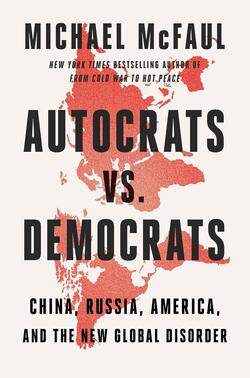DoorDash and Microsoft join Industry-Wide Deliberative Forum on Future of AI Agents
In an exciting development, the Industry-Wide Deliberative Forum convened by Stanford University’s Deliberative Democracy Lab is announcing the addition of two new companies — DoorDash and Microsoft — joining the group of technology companies Cohere, Meta, Oracle, and PayPal, advised by the Collective Intelligence Project in a collaborative effort to engage the public in shaping the future of AI agents.
There is a gap between the development of technology, particularly AI, and the public's understanding of these advancements. This Forum is answering the question: what if the public could be more than just passive users of these technologies, but instead take an active role in shaping their progress? This growing group of technology companies is excited to engage in a collaborative approach to consulting the public on these complex issues.
The inclusion of DoorDash and Microsoft speaks to the importance of this Forum and of engaging the public on the future of AI agents. "We believe the future of AI agents must be shaped thoughtfully, with meaningful public input. This forum provides an important platform to elevate diverse voices and guide the responsible development of AI that all businesses can benefit from,” said Chris Roberts, Director of Community Policy and Safety, at DoorDash.
“We’re proud to support and participate in this effort.”
The Industry-Wide Deliberative Forum is set to take place in Fall 2025 and will be conducted on the AI-assisted Stanford Online Deliberation Platform. This Forum is rooted in deliberation, which involves bringing together representative samples of the public, presenting them with options and their associated tradeoffs, and encouraging them to reflect on both this education and their personal experiences. Research has shown that deliberative methods yield more thoughtful feedback for decision-makers, as individuals must consider the complexities of the issues at hand, rather than simply top-of-mind reactions.
“Microsoft is excited to join this cross-industry collaborative effort to better understand public perspectives on how to build the next generation of trustworthy AI systems,” Amanda Craig, Senior Director of Public Policy, Office of Responsible AI, Microsoft.
The collaboration encourages thoughtful feedback rather than reactive opinions, ensuring that the public’s perspective is both informed and actionable. “Welcoming DoorDash and Microsoft to our collaborative table is an excellent opportunity to broaden the impact of our work,” said James Fishkin, Director of Stanford’s Deliberative Democracy Lab. “This expansion embodies a shared commitment to collectively shaping our future with AI through public consultations that are both representative and thoughtful.”
Media Contact: Alice Siu, Stanford Deliberative Democracy Lab
Read More

The inclusion of these companies in the Industry-Wide Deliberative Forum, convened by Stanford University’s Deliberative Democracy Lab, speaks to its importance and the need to engage the public on the future of AI agents.









